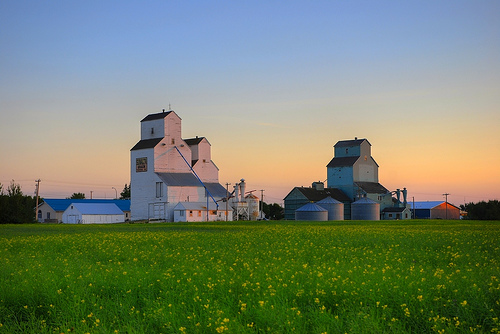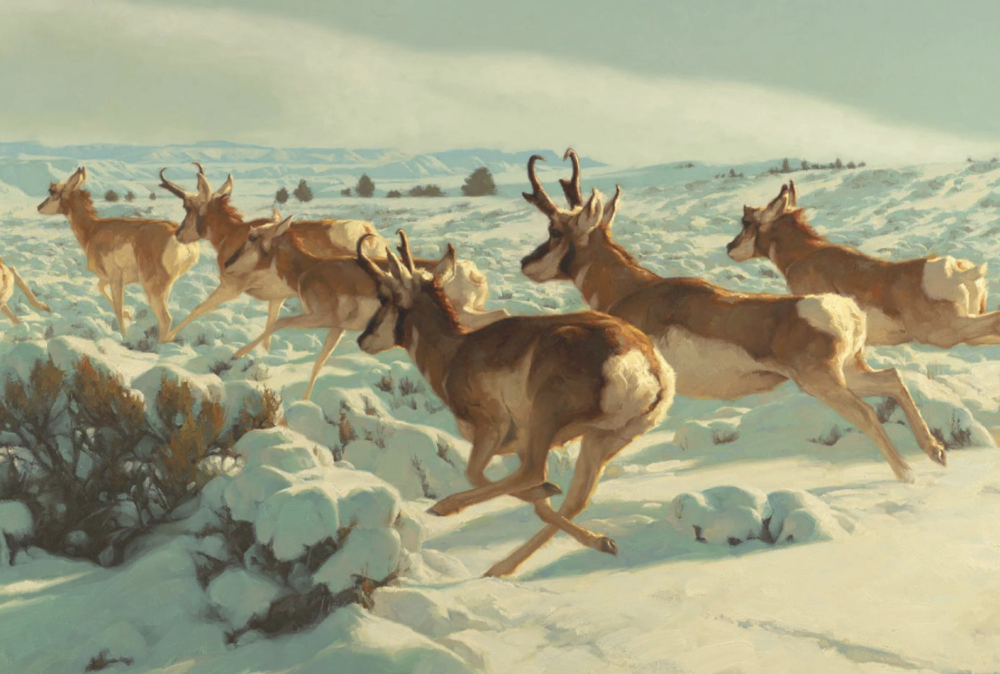On Halloween, the world’s seven billionth person was born in Asia – a tantalizing development for Alberta’s farmers and ranchers looking to expand their markets.
Tantalizing, because while global demand for food is growing, as well as the income needed to buy it, Alberta remains largely shut out of lucrative emerging markets because of various barriers to trade, especially in Asia.
But a growing chorus of critics say the bigger reason Alberta is missing out on the vast opportunity of feeding Asia comes from an agriculture industry that clings to outmoded and inefficient practices and policies.
“There’s a lot of structural and institutional issues that are getting in our way to being competitive globally,” said Jerry Bouma, a management consultant specializing in agriculture.
“It’s not that the demand isn’t out there and the opportunity isn’t out there; we’re just not doing a very good job organizing ourselves to take advantage of it in a strategic, businesslike manner.”
Alberta’s agricultural production across most sectors is falling from peaks reached years ago, he says.
Wheat acreage is down 14 per cent from a high set in 1992 while barley is down 44 per cent since a peak in 1981. Beef cows are down 23.5 per cent from their 2005 peak and sows are down 31 per cent since 2002.
He blames a variety of conditions, including an agriculture industry “fatigued” by a series of setbacks such as droughts, diseases, low prices and the dominant energy industry driving up the cost of materials and labour in Alberta.
In the pork industry, Bouma says producers and processors operate at cross purposes; when returns are good for one, they aren’t for the other. He calls for an integrated system.
The cattle industry needs to better brand and market its product to differentiate from the U.S., he adds.
In the crops sector, he says the Canadian Wheat Board has constrained the innovation and growth of wheat and barley.
Bouma says in the long term, Asian nations may dismantle trade barriers on their own.
“As economies grow and the prospect of shortages grow, which is the case in China, those barriers are going to start to be overcome.”
Another agricultural observer says Canada’s ability to convince countries to drop trade barriers is undermined by its own protection of sectors such as dairy and eggs.
“One of the reasons we’re not making very much progress is because of our position on dairy and poultry,” said Larry Martin, a senior research fellow at the George Morris Centre, an independent agri-food thinktank.
He also says Canada’s regulatory system for foods is too slow and discourages investment. “There’s no incentive to innovate in Canada.”
Martin says Canada’s share of world markets is falling, its agricultural productivity is rising more slowly than that of its competitors and its influence in world agri-food trade talks is waning.
“I might use the term, ‘shoot ourselves in the foot.’ “
Martin says outdated policies are impeding prosperity for rural communities and export opportunities for food processors, and could cause a potential humanitarian tragedy if Canadian food doesn’t get to hungry mouths.
Although Alberta produces much more food than it can consume, it stands to lose millions of dollars a year unless Canadian governments can convince nations such as South Korea, China and Japan to more fully open their borders.
Industry and Alberta’s government know the stakes are high.
“There’s a market growth opportunity there that is just absolutely phenomenal,” says Alberta’s new Agriculture Minister Evan Berger.
“We need to be positioned to take advantage of that.
“There’s only six countries in the world that can actually supply more than they can consume. Alberta, as a province, ranks pretty high among those six countries as a producing area. I think inevitably they’re going to be seeking it, and we want to be positioned in the meantime, that we are that go-to market.”
It’s why Berger, along with his counterparts from Saskatchewan and British Columbia are planning to go to Asia to develop and open markets.
He pins his hopes on selling Alberta’s stability, food safety and traceability – the ability to track the lifespan of livestock from birth to shelf.
“That’s a big bonus in getting into a few of these other markets because they constantly hearken back to that ability.”
Humphrey Banack, president of the Wild Rose Agricultural Producers, says some barriers appear to be thinly disguised protectionism. He points to a common fungus found in Canadian canola that has no impact on human health or canola oil quality that caused China to abruptly cancel canola shipments two years ago.
“We hope that through good trade rules that are developed, these things can be minimized through the future,” Banack said.
One of the most pressing fronts for Alberta producers is South Korea, the province’s fifth-largest market in 2010. In that year, Alberta exported more than $146 million worth of agri-food products to South Korea.
The meat industry is calling on Ottawa to resume free trade negotiations with South Korea, after the United States signed a deal with the Asian nation late last month.
The deal means U.S. beef and pork producers will face much lower tariffs than their Canadian counterparts.
Canadian free-trade talks with South Korea have stalled since 2008 and no new meetings are scheduled. Meanwhile, a free-trade deal between the European Union and South Korea took effect in July and Australia is in negotiations for a similar agreement.
The Canadian Pork Council warns that Canada will miss out on $300 million in business unless it reaches a similar deal.
South Korea is one of the few remaining countries that has yet to reopen its borders to Canadian cattle since the discovery of BSE in some animals in 2003. This summer, South Korea said that by the end of the year it would resume imports of Canadian beef from cows less than 30 months old.
The Canadian Cattlemen’s Association says the lack of a free-trade agreement could scuttle plans to export more beef products to South Korea.
“Almost at the very moment, we hope Korea lifts its prohibition on Canadian beef, they will be reducing the tariff on U.S. beef, which could well negate our market-access gain,” said Travis Toews, president of the CCA.
Gordon Cove, president and CEO of the Alberta Livestock and Meat Agency, said there are other barriers too, and not just in South Korea.
South Korea imposes a tariff on pork, Japan insists beef imports be from animals less than 21 months old and China has restrictions on certain widely accepted feed ingredients.
“The government has taken a very aggressive stance, but I think there has to be a huge push, particularly with respect with Korea because the United States now has an agreement in place there,” said Ron Bonnett, president of the Canadian Federation of Agriculture.
“This gets into the discussion of bilateral negotiations, and we really have to identify some of those highvalue markets and go after them. In our mind Korea is definitely one and Japan’s another.
“There is a certain amount of frustration from some commodities that we haven’t been able to break that barrier, particularly with Korea.”

Source: Edmonton Journal
Join the Conversation…. Should Alberta be exporting to countries such as Asia, and is it the responsibility of Ag Canada to work on opening the borders for this opportunity! We want to hear what you have to say!
















